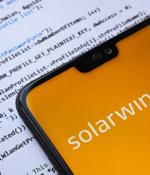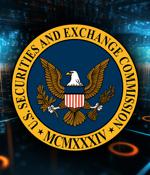Security News

The SEC's cybersecurity-related capabilities were again questioned when SolarWinds addressed the allegations that it didn't follow the NIST Cybersecurity Framework at the time of the attack. The thrust of the SEC's lawsuit concerns how the communication from and actions taken by the company and its CISO, Timothy G Brown, allegedly misled investors about its security practices and known risks, and there are claims SolarWinds did not directly address in its riposte.

The Securities and Exchange Commission brought charges against both Austin, TX-based information security software company SolarWinds and its CISO Timothy G. Brown on October 30. The SEC alleges that between SolarWinds' October 2018 initial public offering and the December 2020 announcement of the large-scale cyberattack, SolarWinds and Brown specifically " defrauded investors by overstating SolarWinds' cybersecurity practices and understating or failing to disclose known risks.

The Securities and Exchange Commission announced charges against SolarWinds and its CISO, Timothy G. Brown, for fraud and internal control failures relating to allegedly known cybersecurity risks and vulnerabilities. The complaint alleges that, from at least its October 2018 initial public offering through at least its December 2020 announcement that it was the target of a massive, nearly two-year long cyberattack, dubbed SUNBURST, SolarWinds and Brown defrauded investors by overstating SolarWinds' cybersecurity practices and understating or failing to disclose known risks.

The U.S. Securities and Exchange Commission today charged SolarWinds with defrauding investors by allegedly concealing cybersecurity defense issues before a December 2020 linked to APT29, the Russian Foreign Intelligence Service hacking division. The SEC claims SolarWinds failed to notify investors about cybersecurity risks and poor practices that its Chief Information Security Officer, Timothy G. Brown, knew about.

Security researchers found three critical remote code execution vulnerabilities in the SolarWinds Access Rights Manager product that remote attackers could use to run code with SYSTEM privileges. SolarWinds ARM is a tool that enables organizations to manage and audit user access rights across their IT environments.

iAPX May 3, 2023 6:37 AM. "Unusual traffic" is suspect traffic, that's why traffic is monitored and everything "Unusual" is logged to be audited if not immediately launching an alarm! If they couldn't have a good network hygiene when evaluating a new solution, there are few chances they do it for production systems where it's more complex with a lot more traffic.

SCSW Back in 2020, Eric Scales led the incident response team investigating a nation-state hack that compromised his company's servers along with those at federal agencies and tech giants including Microsoft and Intel. "It was similar to a fraternity rush - the best experience I never want to do again," Scales, head of incident response at Mandiant, told The Register.

In early 2021, IEEE Security and Privacy asked a number of board members for brief perspectives on the SolarWinds incident while it was still breaking news. The lessons are many, but I want to focus on one important one we've learned: the software that's managing our critical networks isn't secure, and that's because the market doesn't reward that security.

The hack of SolarWinds' software more than two years ago pushed the threat of software supply chain attacks to the front of security conversations, but is anything being done? More recently, attackers have targeted code repositories like GitHub and PyPI and companies like CI/CD platform provider CircleCI, an incident that expanded the definition of a supply chain attack, according to Matt Rose, field CISO for cybersecurity vendor ReversingLabs.

SolarWinds has agreed to pay $26 million to settle a shareholder lawsuit, and it's also expecting to be slapped with an enforcement action by Uncle Sam - both related to its infamous 2020 supply chain security fiasco, according to the software maker's most recent US regulatory filing. At the end of October, SolarWinds reached a deal with investors who sued the company, alleging they were misled about its security posture in advance of the Russian cyberattack on the business, according to an 8-K filing [PDF] with the US Securities and Exchange Commission.